HPV Vaccine Appears Safe in Early Pregnancy
|
By HospiMedica International staff writers Posted on 14 Apr 2017 |
A new study suggests that vaccination against human papillomavirus (HPV) during pregnancy does not increase the risk of maternal or fetal complications.
Researchers at the Danish Statens Serum Institut conducted a retrospective study of all women in Denmark who had a pregnancy that ended between October 1, 2006, and November 30, 2013. Using nationwide registers, the researchers linked data on quadrivalent HPV vaccination, adverse pregnancy outcomes, and potential confounders. Vaccinated women were matched on a 1:4 ratio with women who were not. Study outcomes included a range of gestational and newborn factors.
The results revealed 65 birth defects in vaccine-exposed pregnancies, compared to 220 in unexposed pregnancies; 20 spontaneous abortions with vaccine exposure versus 131 without; 116 preterm births versus 407; 76 cases of low birth weight versus 277; 171 cases of small size for gestational age versus 783; and two stillbirths versus four. Upon analysis, exposure to HPV vaccine was not associated with significantly higher risks for major birth defect, spontaneous abortion, preterm birth, low birth weight, small size for gestational age, or stillbirth. The study was published on March 30, 2017, in the New England Journal of Medicine (NEJM).
“Our results are consistent with other evidence that does not indicate that the vaccination of pregnant women with inactivated virus, bacterial, or toxoid vaccines generally confers a higher risk of adverse pregnancy outcomes than no such vaccination,” concluded lead author Nikolai Scheller, MD, and colleagues. “Our results also confirm and considerably expand on results from previous studies of the quadrivalent HPV vaccine.”
Introduced in 2006, the quadrivalent HPV vaccine covers the four viral strains most closely associated with gynecologic cancer (HPV-6, 11, 16, and 18). HPV types 6 and 11 also cause genital warts. As of 2014, 58 countries include HPV in their routine vaccinations for all girls around the ages of 9-13, and some countries vaccinate boys as well; the vaccines provide protection for at least eight years. Denmark also vaccinates women up to 26 years of age, and as a result some women are inadvertently exposed to HPV vaccination during early pregnancy.
Researchers at the Danish Statens Serum Institut conducted a retrospective study of all women in Denmark who had a pregnancy that ended between October 1, 2006, and November 30, 2013. Using nationwide registers, the researchers linked data on quadrivalent HPV vaccination, adverse pregnancy outcomes, and potential confounders. Vaccinated women were matched on a 1:4 ratio with women who were not. Study outcomes included a range of gestational and newborn factors.
The results revealed 65 birth defects in vaccine-exposed pregnancies, compared to 220 in unexposed pregnancies; 20 spontaneous abortions with vaccine exposure versus 131 without; 116 preterm births versus 407; 76 cases of low birth weight versus 277; 171 cases of small size for gestational age versus 783; and two stillbirths versus four. Upon analysis, exposure to HPV vaccine was not associated with significantly higher risks for major birth defect, spontaneous abortion, preterm birth, low birth weight, small size for gestational age, or stillbirth. The study was published on March 30, 2017, in the New England Journal of Medicine (NEJM).
“Our results are consistent with other evidence that does not indicate that the vaccination of pregnant women with inactivated virus, bacterial, or toxoid vaccines generally confers a higher risk of adverse pregnancy outcomes than no such vaccination,” concluded lead author Nikolai Scheller, MD, and colleagues. “Our results also confirm and considerably expand on results from previous studies of the quadrivalent HPV vaccine.”
Introduced in 2006, the quadrivalent HPV vaccine covers the four viral strains most closely associated with gynecologic cancer (HPV-6, 11, 16, and 18). HPV types 6 and 11 also cause genital warts. As of 2014, 58 countries include HPV in their routine vaccinations for all girls around the ages of 9-13, and some countries vaccinate boys as well; the vaccines provide protection for at least eight years. Denmark also vaccinates women up to 26 years of age, and as a result some women are inadvertently exposed to HPV vaccination during early pregnancy.
Latest Patient Care News
- Revolutionary Automatic IV-Line Flushing Device to Enhance Infusion Care
- VR Training Tool Combats Contamination of Portable Medical Equipment
- Portable Biosensor Platform to Reduce Hospital-Acquired Infections
- First-Of-Its-Kind Portable Germicidal Light Technology Disinfects High-Touch Clinical Surfaces in Seconds
- Surgical Capacity Optimization Solution Helps Hospitals Boost OR Utilization

- Game-Changing Innovation in Surgical Instrument Sterilization Significantly Improves OR Throughput
- Next Gen ICU Bed to Help Address Complex Critical Care Needs
- Groundbreaking AI-Powered UV-C Disinfection Technology Redefines Infection Control Landscape
- Clean Hospitals Can Reduce Antibiotic Resistance, Save Lives
- Smart Hospital Beds Improve Accuracy of Medical Diagnosis
- New Fast Endoscope Drying System Improves Productivity and Traceability
- World’s First Automated Endoscope Cleaner Fights Antimicrobial Resistance
- Portable High-Capacity Digital Stretcher Scales Provide Precision Weighing for Patients in ER
- Portable Clinical Scale with Remote Indicator Allows for Flexible Patient Weighing Use
- Innovative and Highly Customizable Medical Carts Offer Unlimited Configuration Possibilities
- Biomolecular Wound Healing Film Adheres to Sensitive Tissue and Releases Active Ingredients
Channels
Critical Care
view channel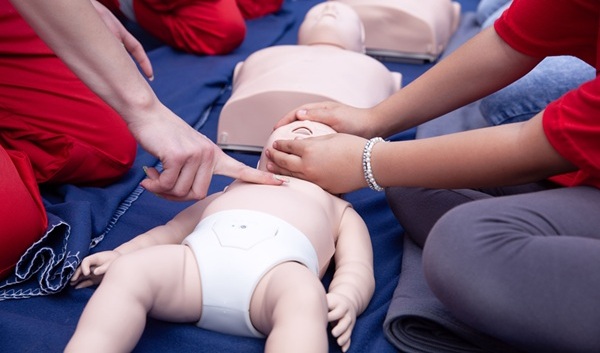
CPR Guidelines Updated for Pediatric and Neonatal Emergency Care and Resuscitation
Cardiac arrest in infants and children remains a leading cause of pediatric emergencies, with more than 7,000 out-of-hospital and 20,000 in-hospital cardiac arrests occurring annually in the United States.... Read more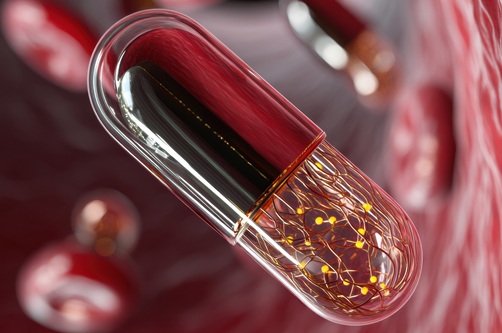
Ingestible Capsule Monitors Intestinal Inflammation
Acute mesenteric ischemia—a life-threatening condition caused by blocked blood flow to the intestines—remains difficult to diagnose early because its symptoms often mimic common digestive problems.... Read more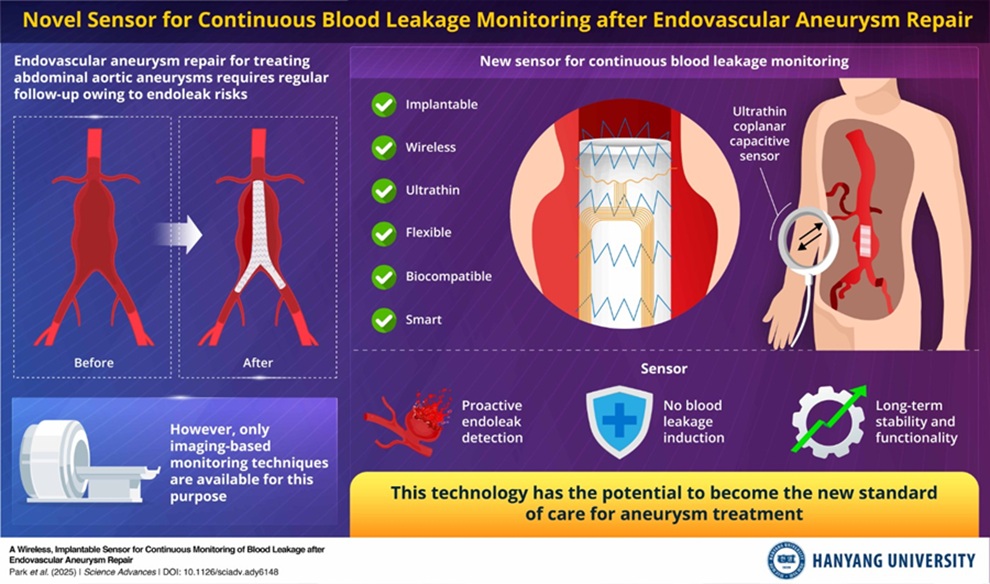
Wireless Implantable Sensor Enables Continuous Endoleak Monitoring
Endovascular aneurysm repair (EVAR) is a life-saving, minimally invasive treatment for abdominal aortic aneurysms—balloon-like bulges in the aorta that can rupture with fatal consequences.... Read more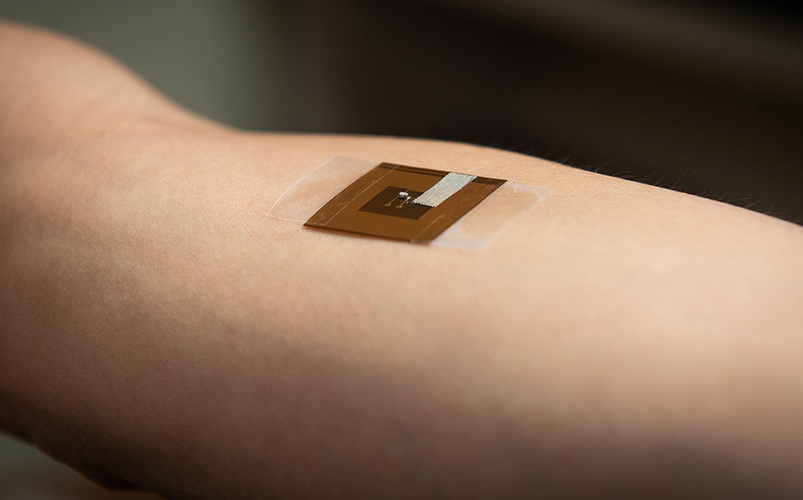
Wearable Patch for Early Skin Cancer Detection to Reduce Unnecessary Biopsies
Skin cancer remains one of the most dangerous and common cancers worldwide, with early detection crucial for improving survival rates. Traditional diagnostic methods—visual inspections, imaging, and biopsies—can... Read moreSurgical Techniques
view channel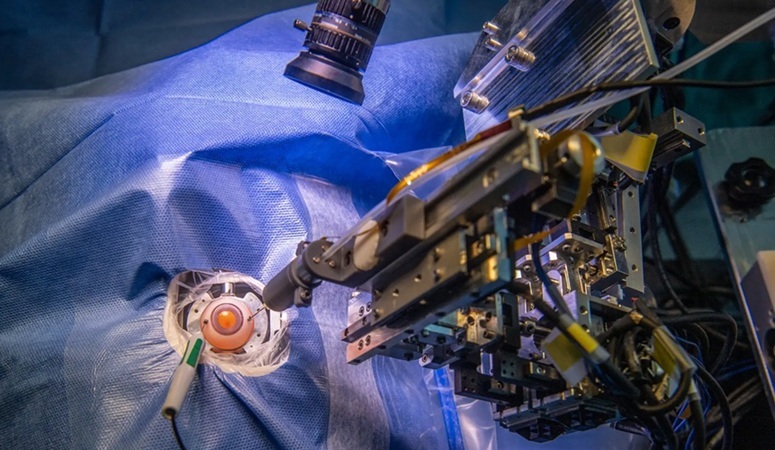
Robotic Assistant Delivers Ultra-Precision Injections with Rapid Setup Times
Age-related macular degeneration (AMD) is a leading cause of blindness worldwide, affecting nearly 200 million people, a figure expected to rise to 280 million by 2040. Current treatment involves doctors... Read more
Minimally Invasive Endoscopic Surgery Improves Severe Stroke Outcomes
Intracerebral hemorrhage, a type of stroke caused by bleeding deep within the brain, remains one of the most challenging neurological emergencies to treat. Accounting for about 15% of all strokes, it carries... Read moreHealth IT
view channel
Printable Molecule-Selective Nanoparticles Enable Mass Production of Wearable Biosensors
The future of medicine is likely to focus on the personalization of healthcare—understanding exactly what an individual requires and delivering the appropriate combination of nutrients, metabolites, and... Read moreBusiness
view channel
Philips and Masimo Partner to Advance Patient Monitoring Measurement Technologies
Royal Philips (Amsterdam, Netherlands) and Masimo (Irvine, California, USA) have renewed their multi-year strategic collaboration, combining Philips’ expertise in patient monitoring with Masimo’s noninvasive... Read more
B. Braun Acquires Digital Microsurgery Company True Digital Surgery
The high-end microsurgery market in neurosurgery, spine, and ENT is undergoing a significant transformation. Traditional analog microscopes are giving way to digital exoscopes, which provide improved visualization,... Read more
CMEF 2025 to Promote Holistic and High-Quality Development of Medical and Health Industry
The 92nd China International Medical Equipment Fair (CMEF 2025) Autumn Exhibition is scheduled to be held from September 26 to 29 at the China Import and Export Fair Complex (Canton Fair Complex) in Guangzhou.... Read more














